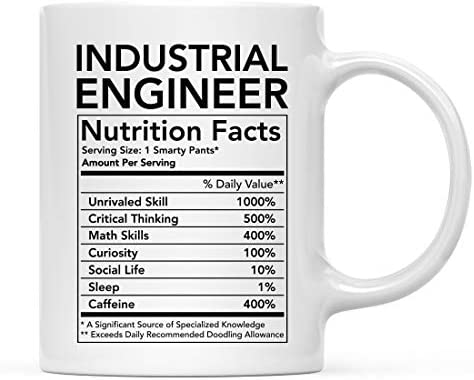
To be a logistics manager, you must manage large quantities. You will be responsible for ensuring the timely and safe delivery of goods to customers. It will be necessary to manage multiple employees. You will also need to make sure that every company follows the rules and regulations in the industry. It is important to understand logistics and the various steps involved in their implementation. You should therefore have enough education in this field.
Job duties
Logistics managers are responsible for planning and managing both forward and reverse logistics functions. This job also involves communicating freight transport information to customers and negotiating transportation rates. It also requires supervising personnel in shipping departments. The logistics manager also analyzes environmental impact of logistics activities, and implements and monitors carbon management systems. Additionally, they create and implement policies and training programs to support shipping department personnel. They are responsible for determining carrier selection and other issues that affect transportation.
For this job to be successful, logistics managers need to have exceptional organizational skills, excellent attention and knowledge of inventory system. In addition, the logistics manager must have exceptional problem-solving skills, be able to manage staff and comply with company regulations. A logistics manager must be able to communicate effectively and have good interpersonal skills. He or she must be able use information technology and have strong analysis skills.

Education is required
You might be curious about the education requirements for a career as a logistics professional. The job is analytical and requires knowledge of mathematics as well as business principles. You will need to be able to see the details and have previous experience with spreadsheet data management and logistics systems. In order to fully understand supply chain management, you must be able and proficient with analytics software. Knowing the supply chain elements and their nuances will enable a logistics manager identify inefficiencies as well as trouble spots.
A bachelor's Degree in Logistics is not essential for this job. However, a Master's Degree in Supply Chain Management or Logistics may offer you more detailed training. This degree may restrict your ability to work in an entry-level position. During your college years, use this time to gain work experience. Find internship opportunities and work placement programmes. Apply for positions that require an MBA, if you are interested in a master's program.
Salary
A logistics manager's salary can vary depending on where he or she works. The highest-paying locations for logistics managers include those who work for logistics companies or other large employers. However, these sites don't always agree on which places pay the highest. Here are the top-paying places for logistics managers. Additional factors can also affect the salary for logistics managers.
A logistics manager should have experience in the field. Part-time work is an option for freshers, as they may have fewer chances to get hired. If experience is not enough, they should consider getting an MBA. A few other roles within the Logistics Management profession may be of interest to them. These jobs might not be the highest-paying ones in the sector.

Job outlook
There are many entry points into the career of a logistics manager. Depending on your educational background, training, and experience, you can position yourself to take advantage of career growth opportunities. Respondents ranked continuing education the best way to progress in their careers, according to the Logistics Management Annual Salary Survey. A further 22% of respondents stated that it was essential to pursue a degree in logistics or transportation for advancement. With the right education, logistics management can be a lucrative career option.
Logisticians will be pleased to know that the demand for skilled labor will continue to grow in the near future. This profession is expected to grow in the coming years. There will be a projected increase of 7% in employment over ten years. Technologies like blockchain and public ledger technology are expected to impact the supply chain industry. These technologies will affect the jobs of logistics managers in the coming years, as they will make the entire supply chain more efficient.
FAQ
What type of jobs is there in logistics
There are many kinds of jobs available within logistics. Here are some:
-
Warehouse workers - They load trucks and pallets.
-
Transportation drivers – These drivers drive trucks and wagons to transport goods and pick up the goods.
-
Freight handlers are people who sort and pack freight into warehouses.
-
Inventory managers – They manage the inventory in warehouses.
-
Sales representatives - They sell products.
-
Logistics coordinators - They plan and organize logistics operations.
-
Purchasing agents - They buy goods and services that are necessary for company operations.
-
Customer service agents - They answer phone calls and respond to emails.
-
Ship clerks - They issue bills and process shipping orders.
-
Order fillers - These people fill orders based on what has been ordered.
-
Quality control inspectors: They inspect outgoing and incoming products for any defects.
-
Others - There is a variety of other jobs in logistics. These include transportation supervisors and cargo specialists.
Why automate your warehouse?
Modern warehouses have become more dependent on automation. E-commerce has increased the demand for quicker delivery times and more efficient processes.
Warehouses should be able adapt quickly to new needs. Technology investment is necessary to enable warehouses to respond quickly to changing demands. Automation warehouses can bring many benefits. Here are some of the reasons automation is worth your investment:
-
Increases throughput/productivity
-
Reduces errors
-
Increases accuracy
-
Safety is boosted
-
Eliminates bottlenecks
-
Allows companies to scale more easily
-
Increases efficiency of workers
-
This gives you visibility into what happens in the warehouse
-
Enhances customer experience
-
Improves employee satisfaction
-
Minimizes downtime and increases uptime
-
This ensures that quality products are delivered promptly
-
Eliminates human error
-
This helps to ensure compliance with regulations
What is the role and responsibility of a Production Planner?
Production planners ensure that all project aspects are completed on time, within budget and within the scope. They ensure that the product or service is of high quality and meets client requirements.
Statistics
- According to the United Nations Industrial Development Organization (UNIDO), China is the top manufacturer worldwide by 2019 output, producing 28.7% of the total global manufacturing output, followed by the United States, Japan, Germany, and India.[52][53] (en.wikipedia.org)
- In the United States, for example, manufacturing makes up 15% of the economic output. (twi-global.com)
- (2:04) MTO is a production technique wherein products are customized according to customer specifications, and production only starts after an order is received. (oracle.com)
- [54][55] These are the top 50 countries by the total value of manufacturing output in US dollars for its noted year according to World Bank.[56] (en.wikipedia.org)
- According to a Statista study, U.S. businesses spent $1.63 trillion on logistics in 2019, moving goods from origin to end user through various supply chain network segments. (netsuite.com)
External Links
How To
How to Use Lean Manufacturing for the Production of Goods
Lean manufacturing is a management style that aims to increase efficiency and reduce waste through continuous improvement. It was developed in Japan between 1970 and 1980 by Taiichi Ohno. TPS founder Kanji Tyoda gave him the Toyota Production System, or TPS award. Michael L. Watkins published the original book on lean manufacturing, "The Machine That Changed the World," in 1990.
Lean manufacturing can be described as a set or principles that are used to improve quality, speed and cost of products or services. It emphasizes the elimination and minimization of waste in the value stream. Lean manufacturing can be described as just-in–time (JIT), total productive maintenance, zero defect (TPM), or even 5S. Lean manufacturing is about eliminating activities that do not add value, such as inspection, rework, and waiting.
Lean manufacturing is a way for companies to achieve their goals faster, improve product quality, and lower costs. Lean Manufacturing is one of the most efficient ways to manage the entire value chains, including suppliers and customers as well distributors and retailers. Lean manufacturing practices are widespread in many industries. Toyota's philosophy is a great example of this. It has helped to create success in automobiles as well electronics, appliances and healthcare.
Five principles are the basis of lean manufacturing:
-
Define Value: Identify the social value of your business and what sets you apart.
-
Reduce Waste - Eliminate any activity that doesn't add value along the supply chain.
-
Create Flow: Ensure that the work process flows without interruptions.
-
Standardize and simplify - Make your processes as consistent as possible.
-
Building Relationships – Establish personal relationships with both external and internal stakeholders.
Although lean manufacturing isn't a new concept in business, it has gained popularity due to renewed interest in the economy after the 2008 global financial crisis. Many businesses have adopted lean production techniques to make them more competitive. In fact, some economists believe that lean manufacturing will be an important factor in economic recovery.
Lean manufacturing, which has many benefits, is now a standard practice in the automotive industry. These include higher customer satisfaction levels, reduced inventory levels as well as lower operating costs.
Lean manufacturing can be applied to almost every aspect of an organization. It is especially useful for the production aspect of an organization, as it ensures that every step in the value chain is efficient and effective.
There are three types of lean manufacturing.
-
Just-in-Time Manufacturing: Also known as "pull systems", this type of lean manufacturing uses just-in-time manufacturing (JIT). JIT is a process in which components can be assembled at the point they are needed, instead of being made ahead of time. This method reduces lead times, increases availability, and decreases inventory.
-
Zero Defects Manufacturing: ZDM ensures that no defective units leave the manufacturing plant. If a part is required to be repaired on the assembly line, it should not be scrapped. This is true even for finished products that only require minor repairs prior to shipping.
-
Continuous Improvement (CI): CI aims to improve the efficiency of operations by continuously identifying problems and making changes in order to eliminate or minimize waste. It involves continuous improvement of processes, people, and tools.